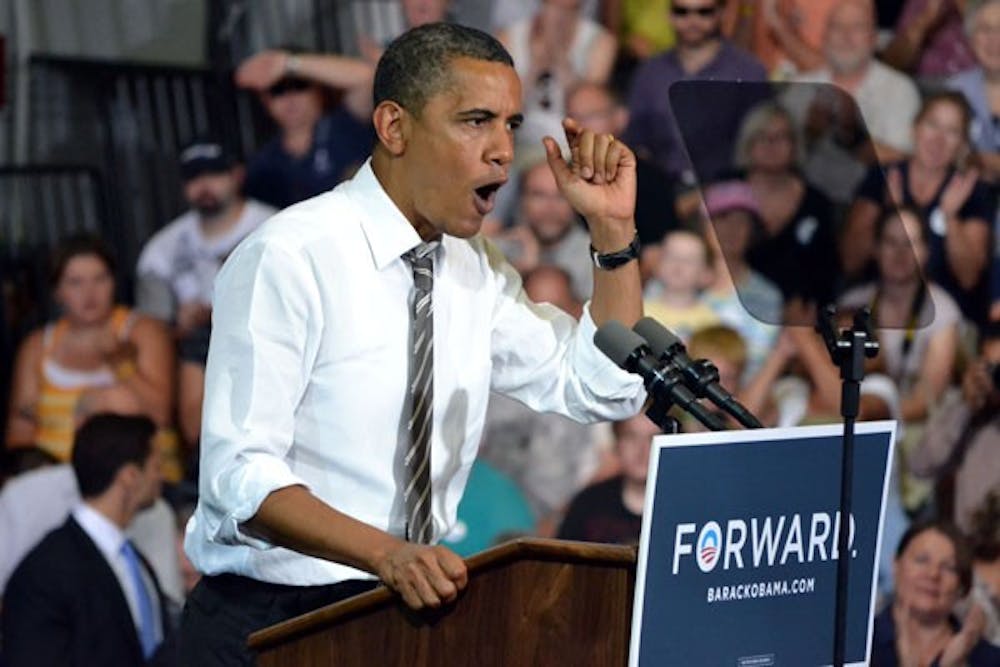 President Barack Obama spoke to a crowd of supporters on July 10 in Cedar Rapids, Iowa. Wednesday's presidential debate strongly focused on the state of the economy as well as the current health care system. (Photo by Kirsten Kraklio)
President Barack Obama spoke to a crowd of supporters on July 10 in Cedar Rapids, Iowa. Wednesday's presidential debate strongly focused on the state of the economy as well as the current health care system. (Photo by Kirsten Kraklio)Wednesday night’s presidential debate focused heavily on the economy and health care, but only lightly touched on education.
Discussion on domestic policy topics quickly grew heated, with both President Barack Obama and former Massachusetts Gov. Mitt Romney blowing past not only time limits but also moderator Jim Lehrer.
The state of the economy was the top issue of Wednesday night’s debate at the University of Denver in Denver, Colo.
Romney’s plan included five segments: energy independence, expanding trade with Latin American countries, ensuring people have the skills to succeed, balancing the budget and championing small businesses.
Both candidates agreed small businesses are important to America, but their views on how to deal with them differed.
Romney said tax rates need to be lowered to protect small businesses.
“If we lower that rate, they will be able to hire more people,” he said.
Obama agreed with lowering tax rates, but said Romney’s definition of “small business” included many millionaires and billionaires.
“Donald Trump is a small business,” Obama said. “I know Donald Trump doesn’t like to think of himself as small anything.”
Romney said the U.S. deficit is not just an economic issue but a moral one.
He said raising taxes slows down job growth.
Obama said Romney’s tax plan had been pitched and tried in 2001 and 2003 and failed.
“It all culminated in the worst financial crisis since the Great Depression,” Obama said. “My tax plan has already lowered taxes for 98 percent of families.”
Obama said he believes in a balanced, responsible approach, which includes eliminating tax breaks for large corporations and companies that outsource jobs.
Romney equated Obama’s use of $90 billion to fund green energy sources to 50 years worth of tax breaks received by oil and gas companies.
The candidates hotly debated the future of Social Security, Medicare and Medicaid.
Obama said Social Security is structurally sound but may need to be tweaked.
He used his grandmother to illustrate why Medicare and Social Security are important to the communities they impact.
“The reason she could be independent was because of Social Security and Medicare,” he said.
Romney promoted his plan for a voucher system, which would provide people two health care options: the traditional Medicare program, or a private sector plan.
Political science professor Rodolfo Espino predicted the debate would be a close one, but would have little overall impact.
“There is very little evidence that any debate will determine the outcome (of an election),” he said.
Criminal justice senior Nathan Fell said neither candidate’s arguments convinced him.
Fell said he will vote for Libertarian presidential candidate Gary Johnson in the November election.
“(Both Obama and Romney) are big government candidates,” he said.
Reach the reporter at kkraklio@asu.edu




